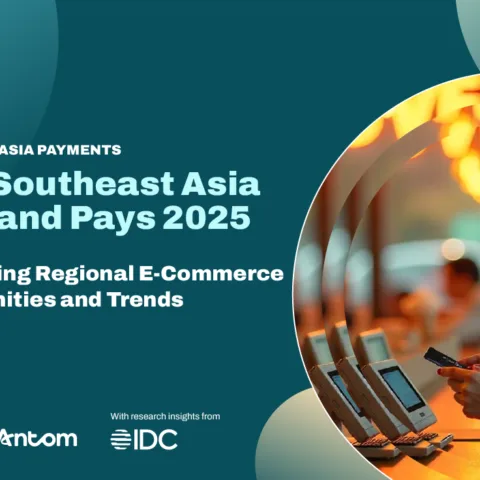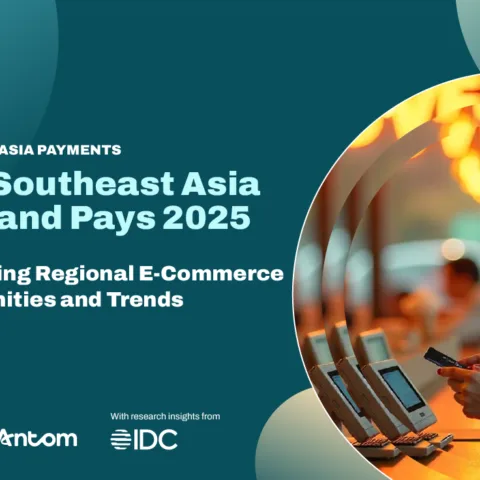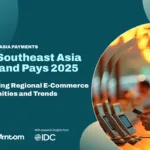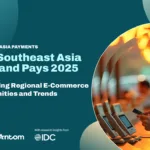 Recently we revealed and discussed about the behaviors of Indonesians online as well as the potential growth of the number of people using the Internet. We found out that the top five online activities by Indonesians involve social media and messaging and we also found out that there are roughly 50 million Indonesians online, a number which may double in less than five years given the current growth rate.
Recently we revealed and discussed about the behaviors of Indonesians online as well as the potential growth of the number of people using the Internet. We found out that the top five online activities by Indonesians involve social media and messaging and we also found out that there are roughly 50 million Indonesians online, a number which may double in less than five years given the current growth rate.
But what does that mean in terms of the economy? Does this affect businesses at all and if it does, how does it compare with other industries?
The Connected Archipelago is a report that was put together by Deloitte and addresses these questions by treating the Internet as a boring industry and measuring it in a traditional way. This isn’t as easy as it sounds. It’s shockingly hard.
Size of the internet economy
Governments don’t track the Internet’s activity as they do other industries — so whatever the Internet does gets counted as something done by someone else. If a shipping firm uses the Internet to reduce its inventory and speed up shipments, that counts as an expansion of the shipping sector. As a general rule, when the Internet helps a business, that business takes the credit. When it hurts a business, however, the Internet will take the blame.
What the folks at Deloitte have done is that they’ve measured the Internet using the same methods that the government uses to add up GDP statistics, the basic benchmark of how much Indonesia has produced in a year.
Bottom line is, they’ve produced a report that gives you a more meaningful way of looking at the internet which allows you to see the industry with a different perspective.
They have added up how much Indonesia spent in total on the Internet, which happens to be the same amount that the Internet’s produced for Indonesia. And that finally allows us to judge how big the Internet really is. Bigger than cars? Bigger than mining? Bigger than Syahrini?
So this is what they’ve discovered: Internet-related activities in Indonesia have produced 1.6% of the nation’s gross domestic product (GDP) or Rp 116 trillion. This is larger than liquefied natural gas at 1.45% and larger than electronic and electrical equipment exports at 1.51%. This is more than three times larger than wood and wood related manufacturing.
Indonesia’s internet economy is massive.
Growth and what should we do about it?
If we put this alongside the other major national industries, how would we treat this Internet economy? How would we encourage its growth? Should we protect it? Thanks to the proliferation of Internet-enabled mobile phones and affordable Internet access, this industry will only grow larger.
The report says, “It is likely that the number of Indonesian households with access to the Internet will double over the next five years, increasing the value of the Internet economy by around Rp 70 trillion or 1% of GDP.”
There’s also great potential for e-commerce. The report estimates only US$230 million a year was spent in e-commerce in 2010, less than 0.1% of GDP. And yet the report cites a comScore survey that found that 50% of Indonesian Internet users had visited retail sites in 2010, up from 41% in 2009.
Today, the Internet accounts for 1.6% of Indonesia’s gross domestic product (GDP). It is forecast to grow at a rate three times that of the overall economy over the next five years and is expected to account for at least 2.5% of GDP by 2016.
A survey of small and medium enterprises found that a majority of them were using the Internet to find a greater range of products and suppliers, at lower prices, and almost two thirds were using the Internet to source supplies.
There lies a clue as to how the Internet got so big: most businesses are having some form of business discussion on the Internet. You mess with that, you’re messing with every business’s ability to get supplies, find clients and handle complaints.
This makes the answer to the earlier question about growing the industry pretty clear. With businesses relying on the Internet for much of their operations, it only makes sense that there needs to be more people online, especially businesses, supplied with as much information as possible.
Limiting the number of people online would only mean taking away a cut of the GDP, effectively reducing the ability and competitiveness of Indonesia in the world stage in which the distribution of information and knowledge is playing greater and greater roles to move a nation forward.
The report reckons that the Internet economy will grow around three times the rate of the overall economy over the next five years. By 2016, it will account for at least 2.5% of GDP by 2016, which means that in just a few years we are looking at a sector as big or bigger than the textiles, leather products and footwear industries (all of which contribute about 2.1% of GDP).
Underground Economy
The report though, still has yet to consider the fact that many Indonesians are trading online, selling goods and services, using personal Facebook pages and BlackBerry Messenger groups. This “underground stores” are not impossible to measure but are usually invisible to most studies as they are easily forgotten or ignored.
You know you have Indonesian friends on Facebook when you’ve been tagged in photos in which there may not be a single person in it but you’ll see dresses or cameras or bags, or just about anything that can be sold. Instead of using sites like Multiply, eBay, Rakuten, or Tokobagus, a lot of these people buy and sell goods on what is normally seen as social networks.
People may joke about it but it’s an underground economy nonetheless, one which plays a part in contributing to the Internet economy.
Bottom Line
So, if not already, maybe it’s time to consider the Internet not as a place to play around, but as a serious industry which has a massive effect on the nation’s economy. It will only continue to play such a role in years to come as it blows past other more traditional economies and spreads its influence across those very industries. The Internet may be a playground to some, but it’s serious business.










